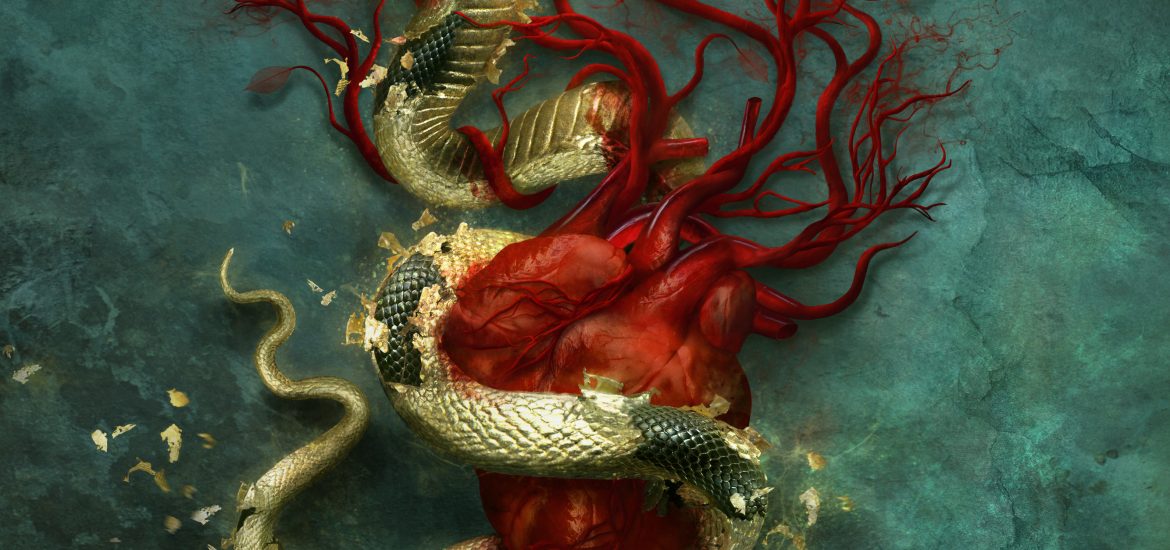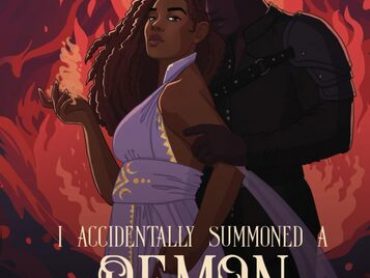Author Ana Lal Din is a Danish-Pakistani Muslim with Indian heritage. She often explores the intricacies of a multicultural identity through her characters. Her debut novel is called The Descent of the Drowned, centering around the character Roma. As the sacred slave of a goddess, Roma is of a lower caste that serves patrons to sustain the balance between gods and men. What she wants is her freedom, but deserters are hunted and hanged, and Roma only knows how to survive in her village where women are vessels without a voice.
Leviathan is the bastard son of an immortal tyrant. Raised in a military city where everyone knows of his blood relation to the persecuted clans, Leviathan is considered casteless, the lowest of the low. Graduating as one of the deadliest soldiers, he executes in his father’s name, attempting to display his worth and reclaim his soul. In the struggle to protect the people they love and rebuild their identities, Roma’s and Leviathan’s destinies interlock as the tyrant hunts an ancient treasure that will doom humankind should it come into his possession — a living treasure to which Roma and Leviathan are the ultimate key. See what Ana Lal Din told us about her books and see her take over our Twitter account today!
Young Entertainment Mag: You released your debut novel this week! How does it feel to have your novel released to the world?
Ana Lal Din: Terrifying. It has suddenly become so real. I want to be super excited. But I think that will take some time as the reviews land and the fate of the novel is determined.
YEM: Your novel is called The Descent of the Drowned. Can you tell us about it?
Ana Lal Din: I wanted a symbolic title because symbolism is one of my favourite literary devices. Descent can be synonymous with fall and drowned refers to humanity, and so the title alludes to the fall of humanity, which is a critical reality in the story as well as our own world.
YEM: Where did the inspiration for this story come from?
Ana Lal Din: Sociocultural and political issues from places like South Asia, Afghanistan, ancient Arabia, and the Middle East, as well as pre-Islamic Arabian mythology and Islamic accounts. I spent a lot of time researching sacred prostitution, caste system, and ethnic persecution to bring marginalised and underrepresented voices into the centre with this story, especially female voices.
YEM: This book takes place in an Indo-Persian world. How did you create this setting? Why was it important to portray this setting in the novel?
Ana Lal Din: I primarily researched South Asian states (such as Maharashtra in India). And noted down that each region has its own customs, language/dialect, food, and so on. And then I built my story world with that same complexity, because I wanted the authenticity of a multidimensional society like South Asia. Simultaneously, I also wanted to draw a parallel to pre-Islamic Arabian society in order to illustrate how disturbing customs from such an ancient world continue to exist within our world. However, I didn’t want to paint a solely dark picture because South Asia has so much beauty, too, which I portray through the different languages that people speak in the story, the way they dress, and even some customs like touching the feet of elders out of respect or celebrating festivals for days with music and dance and colour.
YEM: This is an exciting fantasy novel – do you have a favorite fantasy book series?
Ana Lal Din: I will always cherish Old Magic by Marianne Curley because it introduced me to fantasy and romance.
YEM: Are there any elements of yourself in the main character, Roma?
Ana Lal Din: Her refusal to submit to the world she has been raised to accept as her fate. The fact that she questions everything. Also, her disconnection from her body. When I was ten years old, I suffered from something called depersonalisation disorder. Which people around me didn’t have much knowledge about at the time. It’s a condition where you basically feel like you’re not in your body, you’re not real, and the world around you isn’t real. This condition got considerably worse with time, but I learned to function with it. For Roma, I drew from this experience. Only in her case, the disconnection is related to the loss of ownership over her body after her rape.
YEM: Roma comes from a world where women are silenced. What would you tell women who read this novel and feel they can’t use their voice?
Ana Lal Din: Firstly, if you’re in a dangerous situation, please seek help from someone you can trust whether it’s a family member, friend, or an organisation designed to aid women in your position. Your safety is most important. Secondly, spreading awareness is the first step toward any change. Women must understand their worth, realise their rights, and see themselves as humans before they can even consider breaking out of their sociocultural heritage.
Like I illustrate in my novel, a deeply ingrained culture and long-standing traditions make this battle difficult. Oftentimes, a woman’s circumstances (such as lack of education or lack of financial independency) entraps her further. It’s not an individual but a collective responsibility to help these women. Those of us who have better circumstances and can raise our voices should. Fight to be heard. We are not obligated to serve men. We are not obligated to sacrifice our dignity, our self-worth, for anyone. Choose yourself, always, and stand with and for our sisters.



